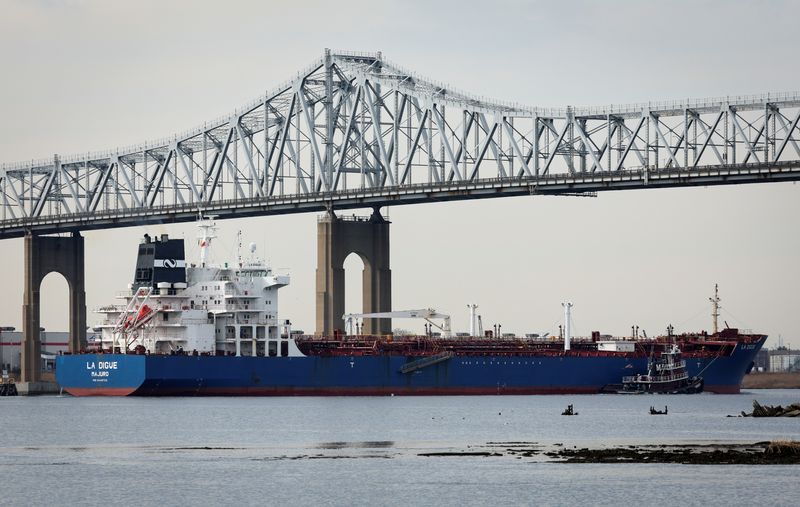By Julia Payne
GENEVA (Reuters) -G7 sanctions on Russia will target its oil and products in three phases, senior U.S. treasury official Ben Harris said on Tuesday, as the bloc seeks to limit unintended economic damage while curbing Moscow's funds to wage war in Ukraine.
Harris, the Treasury's assistant secretary for economic policy, told the Argus European Crude Conference in Geneva that Group of Seven sanctions will target Russian crude oil, while later ones will focus on diesel and a third phase will tackle lower value products such as naphtha.
The timing may complicate a plan viewed with scepticism by industry players worried about sanctions exposure and buyer countries that have not signed up.
Sanctions from the G7 and the European Union, which is opting for a two-phase ban, are set to begin on Dec. 5.
Both economic blocs aim to limit Russian profits from exporting oil following its invasion of Ukraine.
So far Moscow has largely maintained revenues as high prices and increased sales to Asia, especially China and India, have offset the impact of Western energy restrictions.
The EU will ban seaborne shipments of Russian oil from Dec. 5 and of products from Feb. 5, cutting the trade off from financial services and potentially halting it worldwide.
EU sanctions also aim to match an oil price cap agreed by the G7 powers, diplomats have said.
But concern is high that the EU sanctions will drive oil prices still higher, increasing economic pain in countries sanctioning Russia where inflation has already hit multi-decade highs. The United States also wants to shelter emerging markets from the ripple effect of sanctions, Harris said.
The risks have put the United States and the G7 in the paradoxical position of trying to guarantee Russian output, albeit at prices that deprive Moscow of revenue for its invasion.

"As long as we preserve the flow of Russian oil, we consider this a win," Harris said. "The price cap can be considered a release valve on the (EU) sanctions package," he added. "It transforms the ban from an absolute ban to a conditional ban."
The price at which Russian oil sales will be capped has not been decided, Harris said, adding it will be high enough to provide an incentive to maintain output and above the marginal production cost for Russia's most expensive oil well.